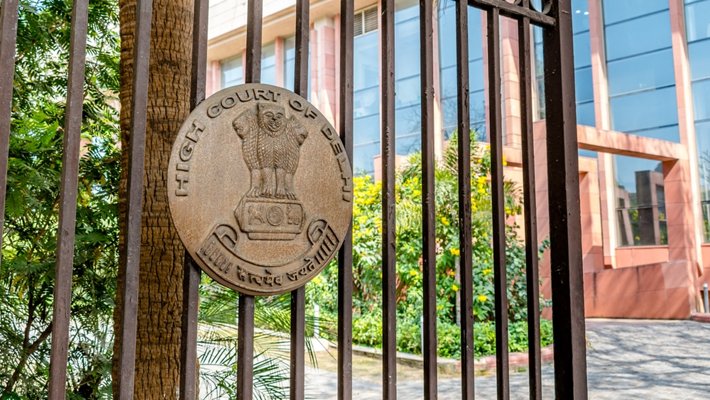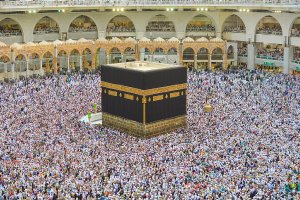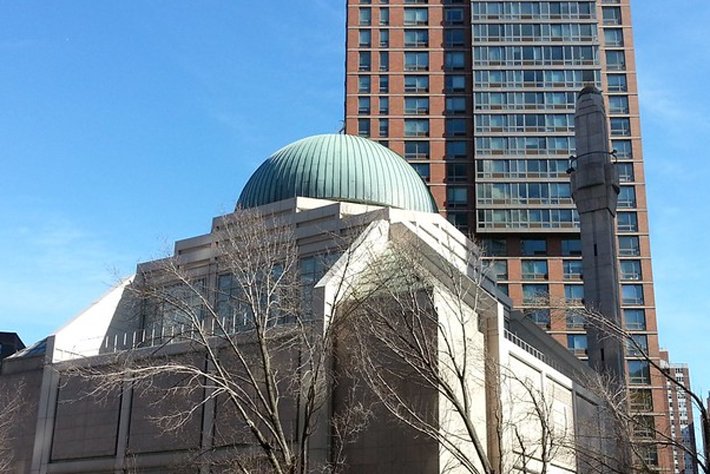This time, the excuse was traffic concerns. It seemed rather half-baked, considering the historic Sunehri mosque had stood at the intersection in New Delhi for at least 150 years with nary a complaint. Yet last summer, the New Delhi Municipal Corp (NDMC) deemed the landmark a traffic hazard and scheduled its demolition.

The NDMC’s decision provoked outrage—6,000 emails from heritage conservationists and Muslim organizations vehemently protesting the action flooded NDMC’s servers. The Delhi Waqf Board (DWB), a commission that administers Muslim sites in New Delhi, filed a complaint to the Delhi High Court. It was dismissed on December 18, sparking a coalition of scholars and attorneys, along with the Indian Civil Liberties Union, to write the NDMC, pointing out the historical importance of the mosque and offering alternative solutions to the supposed traffic problem.
The Sunehri mosque is, according to historian S. Irfan Habib, “not just a mosque, it has a history that is closely associated with several of our freedom fighters. Hasrat Mohani, member of our Constituent Assembly, used to stay here while attending the meetings. Care for its illustrious history.”
India’s organization of historians, the Indian History Congress, called NDMC’s decision “unacceptable and unwise” and said that there has been a “constant attempt to erode our medieval architectural heritage in recent times.”
The mosque, famous for its distinctive and superb architecture, has stood for generations as a monument to mutual religious respect between Hindus and Muslims but is now the latest in a pattern wherein Muslim holy sites are targeted for destruction.
Over 30 years ago, the 16th-century Babri Mosque in northeastern India was the subject of years of debate over whether it was erected over an ancient Hindu shrine. Then, in 1992, it was torn down by a mob. In the ensuing riots, at least 2,000 perished—most of them Muslim. A new Hindu temple opened on the site in January 2024. RSS, the group that incited the violence, was banned for some years, but since the Hindu nationalist political party Bharatiya Janata came to power in 2014, the group, along with the Hindu nationalist organization Vishwa Hindu Parishad, has set its sights on leveling mosques.
The pattern is that a mosque gets targeted, the RSS or similar groups will campaign for several years for its destruction, file petitions, and the mosque then either is or isn’t torn down. Last year saw a petition to transfer the historic Gyanvapi Mosque to Hindu ownership on the grounds that a Hindu temple predated the mosque. Petitions have been filed on the same rationale regarding the Shahi Idgah Mosque southeast of New Delhi and the Quwwatul Islam Mosque in the city.
On January 30, New Delhi’s Akhoondji Mosque was torn down, along with its adjoining Islamic school, cemetery and Sufi shrine—all on the claim that the 600-year-old house of worship was an illegal structure. The DWB protested that the NDMC had given insufficient warning that the mosque was targeted for demolition.
According to journalist Kaisar Andrabi, “The campaign against historic mosques parallels the Modi [Indian Prime Minister] government’s effort to redefine Indian-ness as essentially Hindu, disrupting the country’s long-standing commitment to secularism and threatening to relegate Muslims to second-class citizenship.”
After the New Delhi High Court dismissed the DWB’s plea, Sunehri mosque’s imam, Abdul Aziz, filed a petition to restrain the NDMC from destroying the site, arguing that NDMC had acted in bad faith and that it had failed to produce any evidence showing that the building caused traffic congestion.
Aziz, whose father and grandfather also served as the mosque’s imam, recalls his childhood at the house of worship when then-Prime Minister Indira Gandhi would pass by the mosque and sometimes wave.
Jibran Ahmad, a regular visitor to the mosque, commented, “The new India seems to derive more joy from the demolition of mosques than the construction of new temples. It’s not just Muslims. Mosques are equally subjected to hate.”
The fate of the Sunehri Mosque is still up in the air. As of February 28, the Delhi Traffic Police informed the high court that they had referred the matter to the Heritage Conservation Committee.
_________________
From its beginnings, the Church of Scientology has recognized that freedom of religion is a fundamental human right. In a world where conflicts are often traceable to intolerance of others’ religious beliefs and practices, the Church has, for more than 70 years, made the preservation of religious liberty an overriding concern.
The Church publishes this blog to help create a better understanding of the freedom of religion and belief and provide news on religious freedom and issues affecting this freedom around the world.
The Founder of the Scientology religion is L. Ron Hubbard and Mr. David Miscavige is the religion’s ecclesiastical leader.
For more information, visit the Scientology website or Scientology Network.


